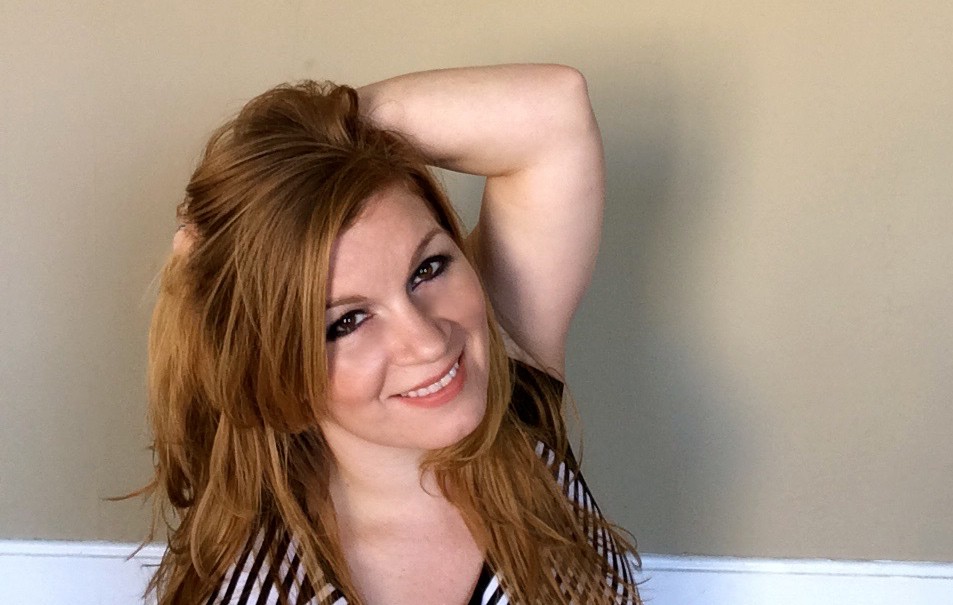We’re excited to introduce you to the always interesting and insightful Kelli Johnson. We hope you’ll enjoy our conversation with Kelli below.
Kelli , thanks for joining us, excited to have you contributing your stories and insights. How did you learn to do what you do? Knowing what you know now, what could you have done to speed up your learning process? What skills do you think were most essential? What obstacles stood in the way of learning more?
Every Sunday of my childhood would find us at a little Baptist church in White Plains, Alabama. And for about 30 minutes every week, I would be immersed in these beautiful old hymns and southern gospel music with piano and 3 part harmony. Everyone was expected to sing, and I believe that my first understanding of how to sing began there. From there my mom and my 3 older sisters would sing those same songs we heard in church in the car, and we would try to perfect that family harmony. When I was about 8 years old, I started trying to write my own songs. I drew on the lyrics of those old hymns I had heard in church and made my first song. Music was such an integral part of my life, and when I was about 12 years old, I would sit in English class and write down all of the lyrics to my favorite songs. By then, it was everything from Guns N Roses, Metallica, and Ozzy Ozbourne to Richard Marx, Madonna, and The Eagles and Journey. This was long before you could google lyrics, so I wrote them down from memory and would re-write them until each line and letter was spaced perfectly and looked neat. I believe this taught me about the verse, chorus, and song structure, and prepared me for what I do today-writing songs.



As always, we appreciate you sharing your insights and we’ve got a few more questions for you, but before we get to all of that can you take a minute to introduce yourself and give our readers some of your back background and context?
While I grew up singing at church and every school event that would allow me to, I never thought about singing and songwriting as a career. I was 20 years old when I walked into a dive bar in Anniston, Alabama, and asked if I could sing a song with the band. The owner asked me if I wanted a job that very night. My first real pay as a performer was $40 a night, and I thought I had made it! I sang 3 or 4 songs with the house band 3 nights a week and worked my way up to $150 a night. I had young children, so this provided me with income while working at night, and allowed me to stay home with them during the day. Over the next 15 or so years, I found a few more jobs and bands over the years, but music was always secondary to raising my children. Though there were a few events I had to leave early or miss for a well-paying job, it was important for me to keep family first and music second. While I was writing original music for myself and performing it at gigs, it wasn’t until moving to Nashville 5 years ago that I considered writing songs for other artists. Now I mainly write songs for other artists.
It’s important for me to be able to help an artist say what they’re wanting to say instead of pushing an idea that I have that might not align with their thinking. You’re far more likely to get an artist cut with a song that they feel represents them!
Can you share a story from your journey that illustrates your resilience?
When I moved to Nashville, I was 40 years old. A lot of friends and people who knew that I sing and perform as a business really thought I was crazy. I was well beyond the age of the “20-something” that record labels were looking to sign. I had to deal with a lot of ageism at first from younger writers and artists, as well as some music industry peers. I knew I was here to write, and that I had a lot to offer so that’s what I focused on. I used my experience to my advantage and focused on building relationships and letting my talent speak for me instead of my age. I was able to offer deeper ideas and songs because of the life that I had lived, and have actually become a “Nashville mom” figure to many of the younger artists and writers that I have formed those close bonds with.



What’s the most rewarding aspect of being a creative in your experience?
In the Entertainment Industry, there is always a focus on receiving awards and accolades. And while I do want those things, for me there is a deeper purpose for the gift that I have. From writing with soldiers who are suffering from PTSD or writing a song that opens a door in a stranger’s life for healing, to simply praying with friends when they need it, I feel like my purpose is helping others and healing through song.
Contact Info:
- Website: www.thekellijohnson.com
- Instagram: www.instgram.com/thekellijohnson
- Facebook: www.facebook.com/kellijohnsonmusic
- Youtube: www.youtube.com/kellijohnsonmusic
Image Credits
Donna Quinn, Mason Dixon lights,


